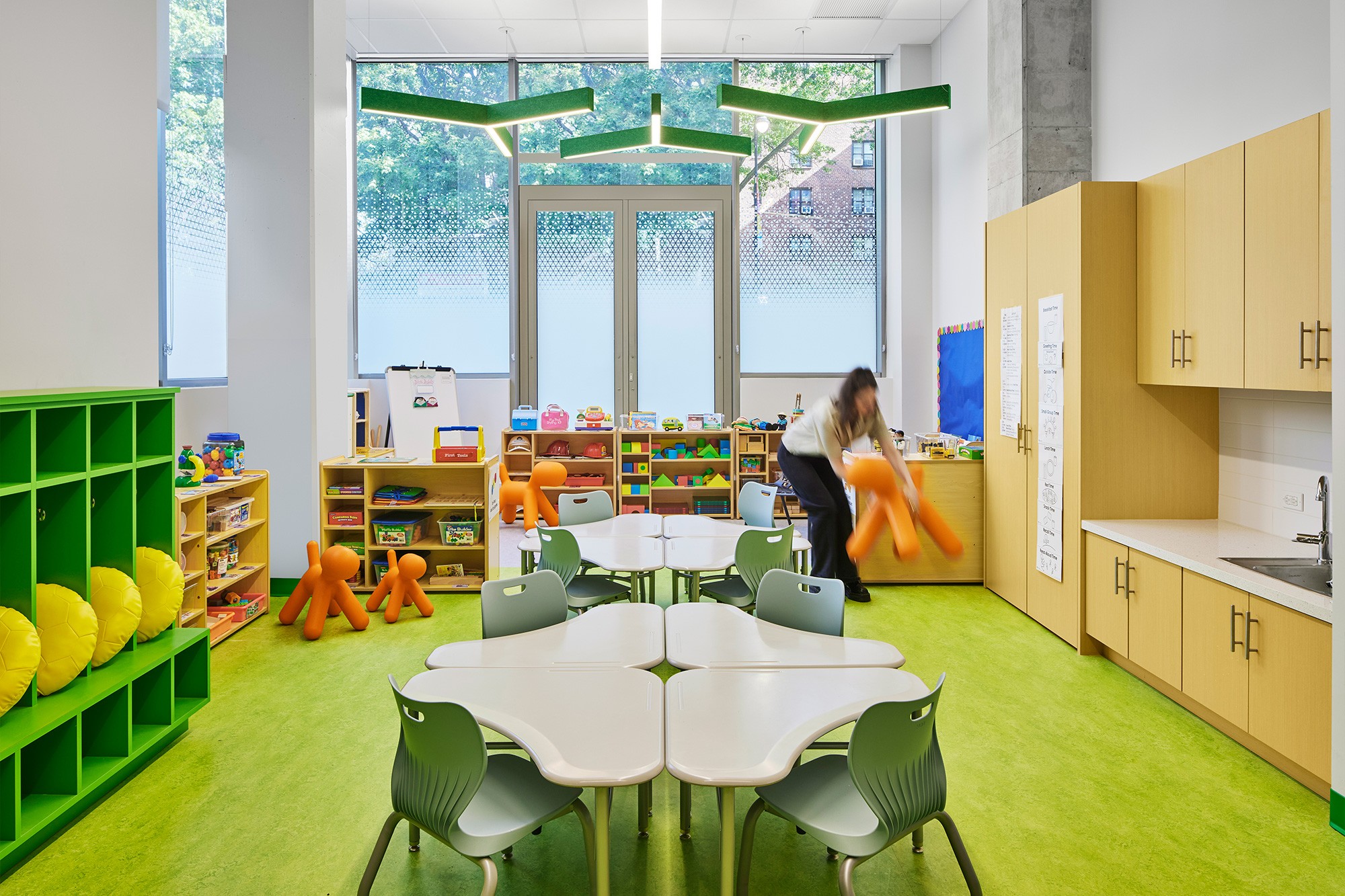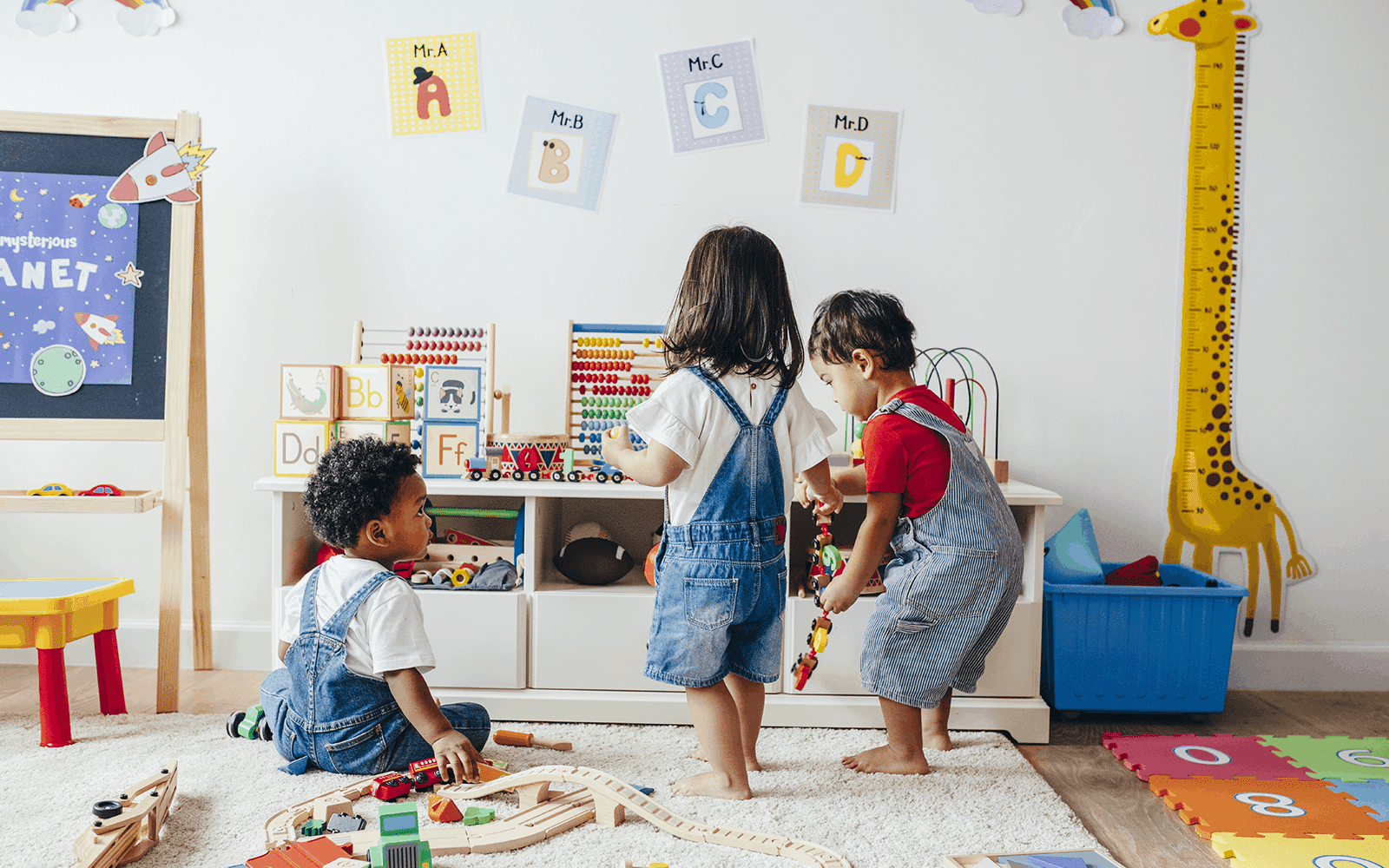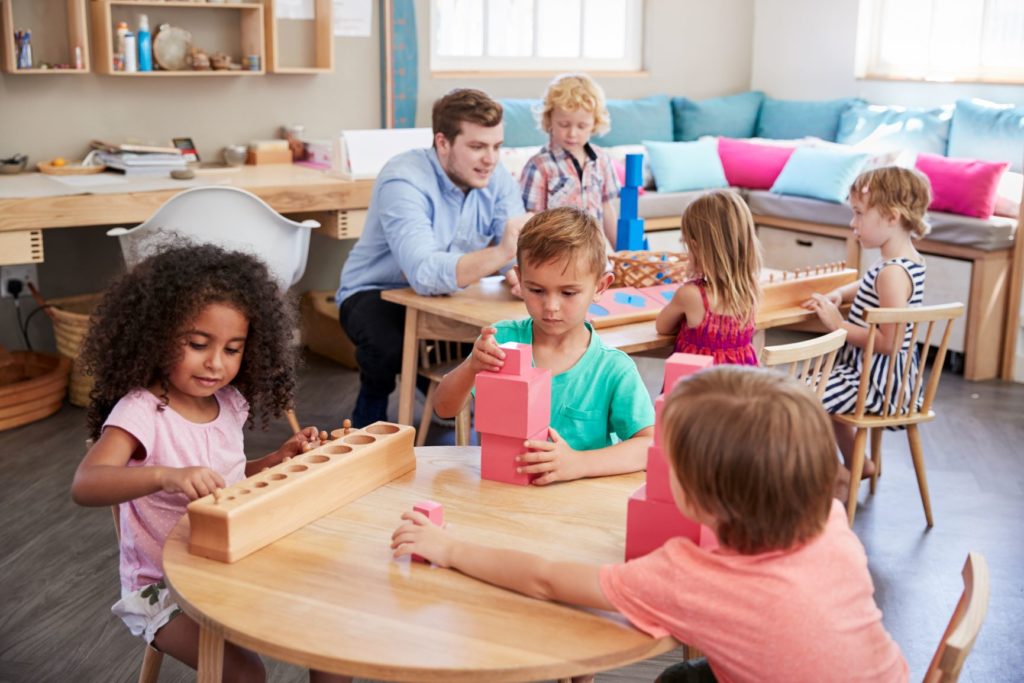The Duty of Day Care in Fostering Social Skills and Very Early Learning
Day care acts as a significant atmosphere for kids, helping with essential social interactions that promote very early understanding. In this structured setting, youngsters engage with caregivers and peers, creating important interaction and cooperation skills. As they navigate play and numerous activities, they discover to settle conflicts and develop psychological intelligence. Comprehending the subtleties of these communications discloses the extensive impact daycare has on a child's advancement, shaping their future connections and scholastic preparedness. What certain abilities do youngsters get in this setting?
The Importance of Social Interaction in Day Care
While numerous parents acknowledge the relevance of early youth education and learning, the function of social communication in day care is commonly taken too lightly. Childcare setups give kids with vital opportunities to engage with peers, cultivating essential social skills. Throughout these developmental years, youngsters discover to navigate various social dynamics, such as sharing, cooperation, and problem resolution. Connecting with varied age and characters improves their ability to adjust to various atmospheres and develop compassion in the direction of others.

Building Communication Skills With Play
Play works as a powerful medium for kids to build vital interaction abilities in childcare setups. With different play activities, kids engage in conversations, reveal their thoughts, and learn to listen to others. Parlor games, as an example, urge them to make use of language in various contexts, promoting vocabulary growth and understanding of social signs.

Storytelling throughout play allows kids to share ideas and emotions, helping them establish narrative abilities and self-confidence in their spoken expressions. On the whole, play not only functions as a delightful pastime yet also as a necessary system for developing the communication abilities essential for successful social interactions in later life.
Motivating Collaboration and Team Effort
Teamwork and teamwork are vital abilities that youngsters can grow in daycare environments. Via numerous group activities, such as building jobs or joint games, kids find out to share responsibilities and pursue typical goals. These interactions foster an understanding of the value of paying attention to others, discussing functions, and jeopardizing when needed.
In day care settings, caregivers frequently create possibilities for kids to engage in teamwork by encouraging them to join team jobs. This not only helps children create social bonds but also grows a feeling of belonging and area.
As they navigate these participating experiences, youngsters acquire valuable insights into the dynamics of collaborating with peers. They learn to value varied perspectives and recognize that each participant contributes uniquely to the team effort. Ultimately, these very early lessons together and team effort check my site lay the groundwork for much healthier connections and effective cooperation in future social and scholastic settings.
Structured Understanding Activities and Cognitive Growth
Structured knowing activities play an integral function in cultivating cognitive advancement in kids (Child Care Near Me). These activities, which include problems, storytelling, and hands-on experiments, promote essential thinking and analytical abilities. In a childcare setup, structured learning motivates children to engage with their peers, boosting their capability to procedure info and understand various principles
Via guided play and interactive jobs, youngsters develop foundational abilities such as numeracy and proficiency. As an example, activities centered around numbers can assist kids realize mathematical concepts, while storytelling improves language purchase and understanding. Furthermore, organized discovering permits instructors to analyze developing progression and tailor activities to individual knowing demands.

Integrating a varied Resources variety of structured activities not just advertises cognitive development however also prepares children for future scholastic success. By supplying a balanced environment that fosters expedition and query, day care programs play a vital role fit the cognitive capacities of young students.
Promoting Emotional Knowledge and Confidence
Emotional knowledge and confidence are essential parts of a kid's development, enhancing the cognitive skills fostered via structured discovering activities. In childcare settings, youngsters are supplied with opportunities to share their emotions and take part in social communications, which are crucial for building psychological understanding. Via assisted play and group tasks, children discover to identify their sensations, recognize those of others, and establish empathy.
Interaction with peers and caretakers assists to cultivate self-confidence and resilience. Positive support and encouragement from adults empower kids to take threats and face difficulties, fostering a sense of success. As they navigate social dynamics, kids build self-confidence in their capacities to communicate, collaborate, and settle conflicts - Child Care Center. This caring environment permits the steady development of emotional knowledge, which is essential for future interpersonal connections and total well-being. Because of this, day care plays a substantial role in promoting both psychological knowledge and self-confidence in young kids
Frequently Asked Questions
Exactly How Can Moms And Dads Pick the Right Childcare for Their Youngster?
Parents should think about elements such as place, personnel certifications, safety and security criteria, educational program, and assesses from various other moms and dads when picking the appropriate childcare for their youngster, guaranteeing it straightens with their youngster's developing demands and family members worths.
What Age Is Finest for Beginning Daycare?

How Does Childcare Impact Kid's Behavior in your home?
Childcare typically favorably influences kids's actions in your home by boosting social abilities, advertising independence, and encouraging psychological regulation (Daycare North York). Consequently, youngsters may display enhanced communication and teamwork, bring about more harmonious household characteristics
Exist Any Drawbacks to Childcare Presence?
Yes, there are downsides to daycare participation, consisting of possible splitting up anxiety, exposure to diseases, and irregular caregiving. These variables can influence a child's emotional well-being and modification in your home, affecting general family members characteristics.
Just How Can Moms And Dads Assistance Social Abilities Learned at Daycare?
Parents can support social skills learned at daycare by helping with playdates, motivating cooperative activities, modeling positive interactions, talking about feelings, and enhancing sharing and interaction in the house, consequently boosting their youngster's social growth and self-confidence.
Childcare serves as a considerable atmosphere for young children, assisting in essential social communications that advertise early discovering. Day care settings provide youngsters with invaluable possibilities to engage with peers, cultivating crucial social abilities. Play serves best site as a powerful tool for youngsters to develop important communication abilities in childcare settings. In daycare setups, kids are supplied with opportunities to express their feelings and engage in social interactions, which are critical for constructing emotional awareness. Childcare commonly positively influences youngsters's habits at home by improving social skills, advertising freedom, and encouraging psychological guideline.